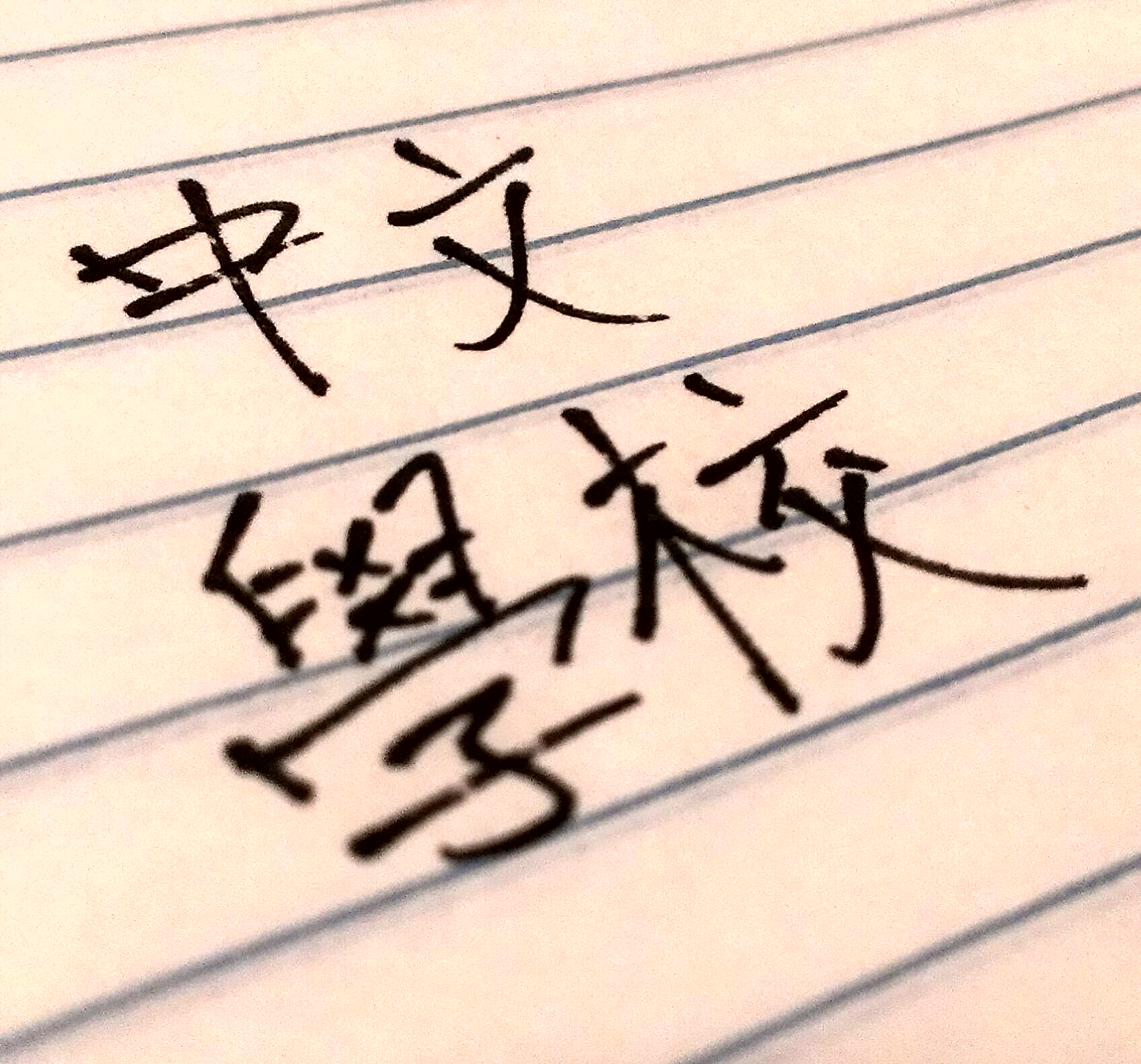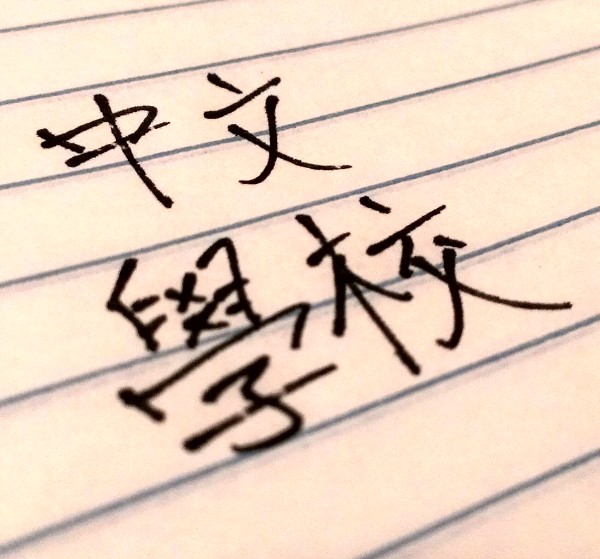If you’re a Chinese American child of Chinese American immigrants, then it’s quite likely you spent part of your childhood attending Chinese school. It’s a coming of age ritual of growing up ½ or 1st generation Chinese American. And of course we all hated it when we were going to Chinese school, complained to our parents about it, and if our parents caved we eventually got out of it. It’s also true that once you’re an adult, you realize your parents were right all along, and almost all of us wish we had stuck with it, and learned more in that dreaded Chinese school.
I’m no exception. When I was a kid, my parents sent me off to Chinese school, but since we had emigrated to a part of the country with few Chinese residents, it was not until I was older, almost a teenager, that I actually went to Chinese school, attending a school where the other kids were mostly in kindergarten and first grade. As you can imagine, my rebellion against going to Chinese school was about as strong as you can get for a kid my age, and my parents relented pretty quickly, letting me and my siblings out of the horror of hanging out and sitting in a class with what we considered the toddler set.
Fast forward a few decades, and now I have my own daughter, my own regrets about not having toughed it out in Chinese school, and my own realization that it’s incredibly important for her to learn Chinese. I want her to have an understanding and connection to her heritage and a connection to her relatives in China and Taiwan, and to succeed in a world where knowing Chinese is increasingly becoming important.
I always thought I’d have more time to get my daughter proficient in Chinese. First I thought by having my mother and father live with me, my daughter would pick up Chinese by interacting with her grandparents. But my dad died of colon cancer before my daughter reached her first birthday. My mother followed shortly after passing away from breast cancer when my daughter was four. Whatever advantage I thought my daughter gained by living with her grandparents seemed to disappear before I even had the chance to consider sending her to Chinese school.
The summer my daughter turned six, I got lucky and found a local Chinese school. Normally it catered only to kids of immigrants, those that spoke Chinese at home. But the year I found them, they were starting their first year of offering a CSL (Chinese as a Second Language) class. We got to be the guinea pigs in their first class, a class they officially called CSL-0 (zero for introductory). The first year’s participants were eclectic, and the ages of the kids varied from 4 to 10, but they all shared the fact that their parents did not speak to them in Chinese at home.
It was a hard first year. The teacher they found for the class was a fluent speaker of Chinese, but not a native speaker, and while she was adept at teaching older kids, she had less experience with younger kids. The kids lost focus in the subject matter way too easily and there were times it seemed the teacher did not have control of the class. But we survived the year, and a little more than half the class came back for a second year, with the second year class labeled CSL-0B (and the new introductory class relabeled CSL-0A), an indication of how little the kids actually learned that first year.
Likewise, my daughter did not learn much that first year, and I told myself it did not matter, she was being exposed to Chinese, and that was the important thing. She complained about Chinese school, and that was expected, and all her aunts and relatives told her they all hated Chinese school when they were kids, and now wished they had stuck with it and had learned more.
Looking back at those first years, I think it was particularly hard for my daughter for a number of reasons. She’s naturally very intelligent, and regular school is easy for her, with very little effort on her part. Chinese school was hard, she was not the best in the class, and none of it came easily. Add that to the fact she did not know anyone else in her class in the beginning, and it made for a very tough year.
The second year of Chinese school, some new kids joined the class, but it was the same teacher, and my daughter rebelled some more against the class, but she was making friends with one of the other girls in the class, and that girl’s mom convinced me to keep my daughter in the class and stick it out for the second year. At the end of the second year, my daughter still had not learned much more, but she was receptive to going back for a third year, now that she had a friend to commiserate with during class, but I was the one ready to drop out after the second year, and considered our experiment in Chinese school a failure. But the girls and the mom ganged up on me, and we signed up for a third year.
Additionally, the school listened to the other mom and myself with regard to our concerns about the teacher and the class. For the third year, they decided to split the class in half with older kids continuing on with the same teacher, and the younger kids (including my daughter) reviewing the same material as the prior years, with a new teacher and have the younger kids stay in CSL-0B for another year. The new teacher they found for the younger kids was a native Chinese speaker, and had the much needed experience dealing with teaching younger kids.
As the school year started, we were astounded by how much more attentive our kids were, and how motivated they were to participate in class. The new teacher understood the value of using a reward system to get kids interested.
As the school year progressed, it was obvious that my daughter was finally picking up some Chinese. The new teacher regularly assessed the kids to see how much they learned, and it was pretty obvious some things were beginning to stick. My own daughter would surprise me with how much she actually remembered and understood. But the arguments about Chinese school continued. While she was generally okay with attending class, the completing the homework proved to be more challenging. She was especially objecting to having to complete the portions of the homework that included calligraphy and writing.
We are approaching the end of the third year of Chinese school with my daughter. It has been a long journey, and there have been plenty of times I was considering letting my daughter drop out, just because it would be easier on me. In the long run, I would like to believe she will thank me for keeping her in the class. Registration deadline for next year just passed, and we’re going to go for another year, with the support framework of her friend and my friend (the other mom). For now, I can see that my daughter understands words, phrases and sentences in Chinese. In addition she’s picking up more of the culture and she’s very proud of being Chinese, and willing to share many of the facts she’s learned about China and Chinese culture and people with her regular school classmates. Those things alone have been worth the uphill battle I have been fighting these last few years. So yes, I believe the dilemma with Chinese school has all been worth it.









